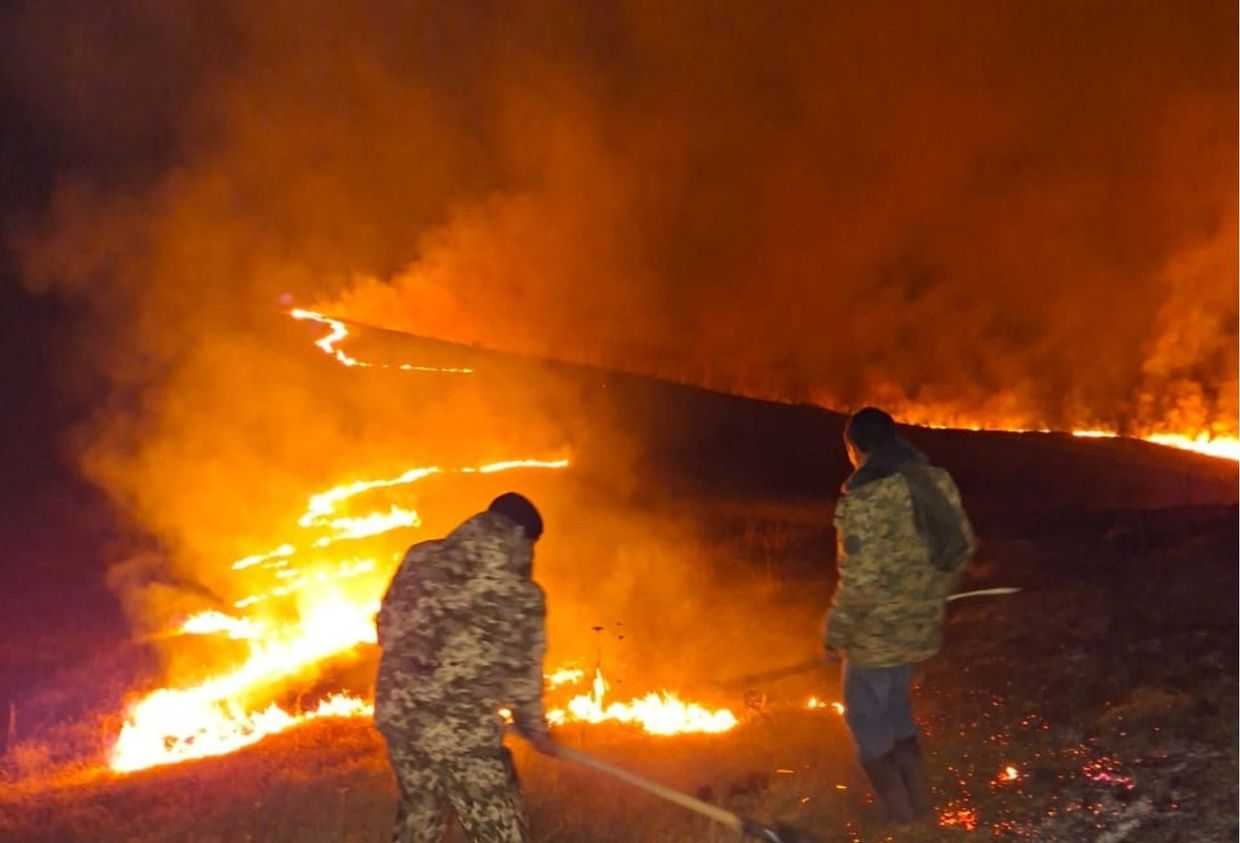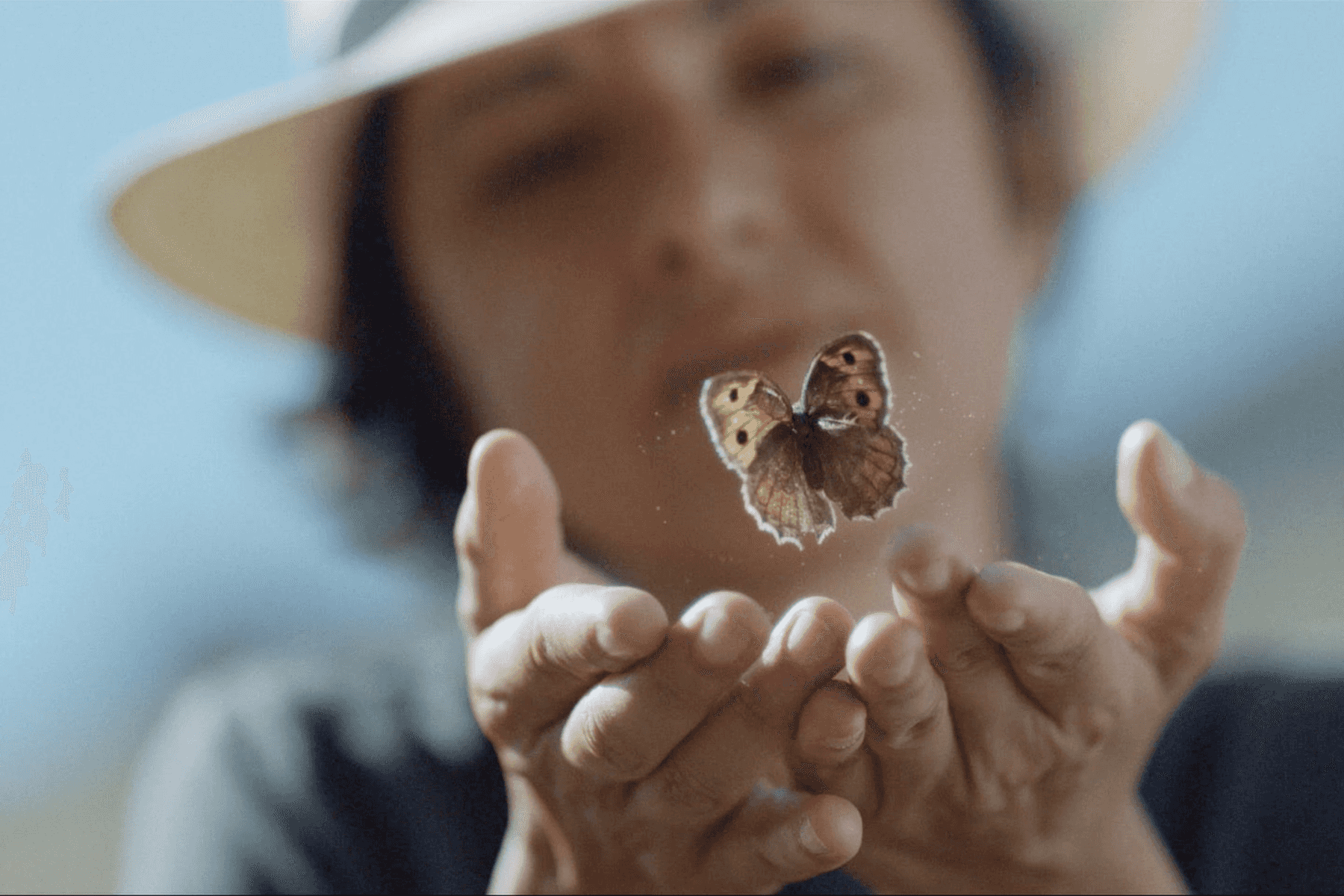
After a chance sighting of a bird believed to have been lost from Georgia, Nika Paposhvili made saving the bird his life’s work. Against the odds, his mission is proving successful.
For much of Nika Paposhvili’s early life, nature was a resource to be used for survival. Born in Kalauri, in Georgia’s eastern Kakheti region, in 1988, Nika recalls the 1990s as ‘a hard time in Georgia’, following the collapse of the Soviet Union.
‘Everyone was […] trying to stay alive’, says Nika. ‘My family was one of the ordinary poor families. And we just tried to use nature to stay alive.’
At the time, Nika’s mother and father taught at the local school for a combined salary of ₾17 (approximately $20–$30 at the time) per month; just enough to buy bread for the family, with the rest of their food grown, foraged, or hunted.
In their garden, they grew beans, potatoes, corn, and wheat, as well as rearing pigs, chickens, and rabbits. From the wild, they collected flowers, berries, mushrooms, and wood, used for cooking and for heat during the winter. And from the age of 7 or 8, Nika began to join his father hunting, where they searched for wood pigeons, doves, wild hares, and ducks.
‘I remember the feeling when I killed my first duck’, says Nika.
On a very cold morning in Kakheti, two decades ago, Nika, his father, and some friends were waiting patiently by the River Alazani just before dawn.
Nika spotted a male mallard flying in his direction.
‘I shoot, it falls. It was a really nice feeling at that time, I was so happy and proud to do this in the presence of my friends and father’, he recalls. ‘Nowadays, it’s hard for me to continue [hunting], but I remember all of the feelings.’
But he sees the experience as an instructive one, even if a stark contrast with the work he does now.
‘I learned a lot of things from hunting. I really loved that time and I am proud of this experience. With this experience it’s easy for me now to work in the field, to work on ducks, and also to communicate with hunters and local communities’, he says.
Despite a curiosity towards geography, Nika followed the advice of his parents and came to Tbilisi to study Business Administration. After completing his degree, he worked at a bank. He says that while the work wasn’t for him, he’s grateful for the experience, as it convinced him to return to nature.
Finding a lost bird
The velvet scoter is a diving duck whose breeding and wintering range covers an area stretching from the palearctic north of Europe, across the Black and Caspian seas, and down to Turkey.
Approximately 30 years ago, there were an estimated 1,500 scoters in the Caucasus, with seven breeding sites in Georgia, seven or eight in Turkey, and one in Armenia. While still highly populous in northern Europe, by 2010 there had been no evidence of breeding populations in Georgia in years.
Nika’s first encounter with the velvet scoter came around the time that he began to join his father hunting, when he came across a book which was set to change the course of his life: a dusty copy of ‘Birds of Georgia’ in his house’s small collection of books.
‘I remember I found the names of species that I had already killed’, says Nika. ‘There were other species I had never seen, and one was the velvet scoter. I wanted to meet that bird, and to be honest, at that time, probably I wanted to kill it.’
He says that while, at the time, he didn’t know anything about bird watching, science, or that a person could be an ornithologist, the book became his ‘bible’.
After leaving the bank, Nika returned to that early interest, following it to complete a master’s degree in ecology at Ilia State University in Tbilisi, graduating in 2014.
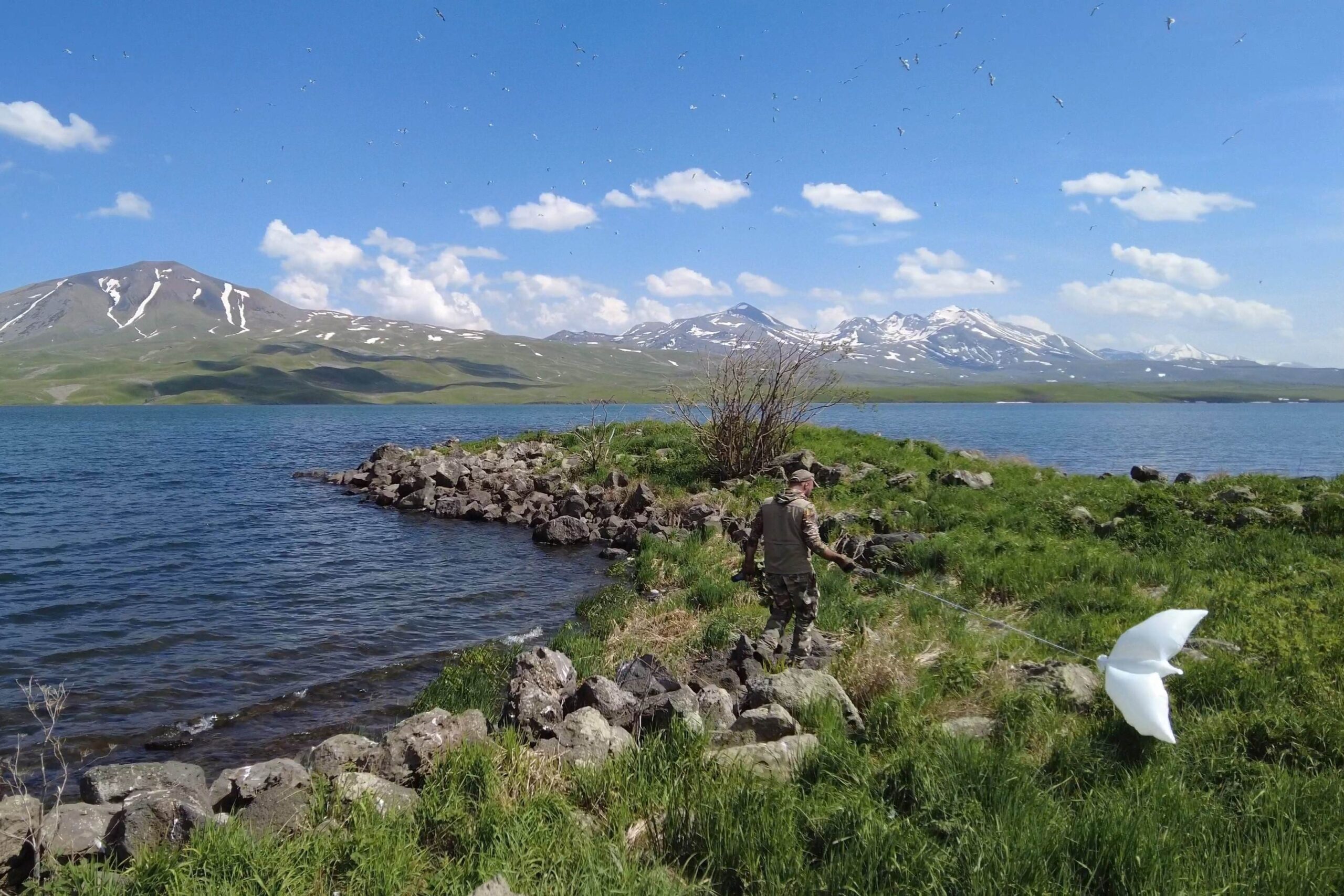
During his degree, Nika had surveyed aquatic bird species in Samtskhe-Javakheti, a region in southern Georgia, to help gather data for his professors.
In early August 2014, Nika got the opportunity to continue that fieldwork at Lake Tabatskuri, so he set off with Marina, his partner.
After a long drive to the volcanic plateau, they were met by harsh weather characteristic of the lake’s microclimate. Rain was coming down hard and strong winds had churned up the surface of the lake, creating big waves.
While Marina decided to remain in the car and shelter from the harsh conditions, Nika was determined to complete the trip as intended.
Nika wanted to investigate the possibility that there might still be a few velvet scoters that had managed to maintain their breeding grounds around the lake. Taking his spotting scope out into the downpour, he surveyed the lake’s island for several hours, with local people coming out to check on him.
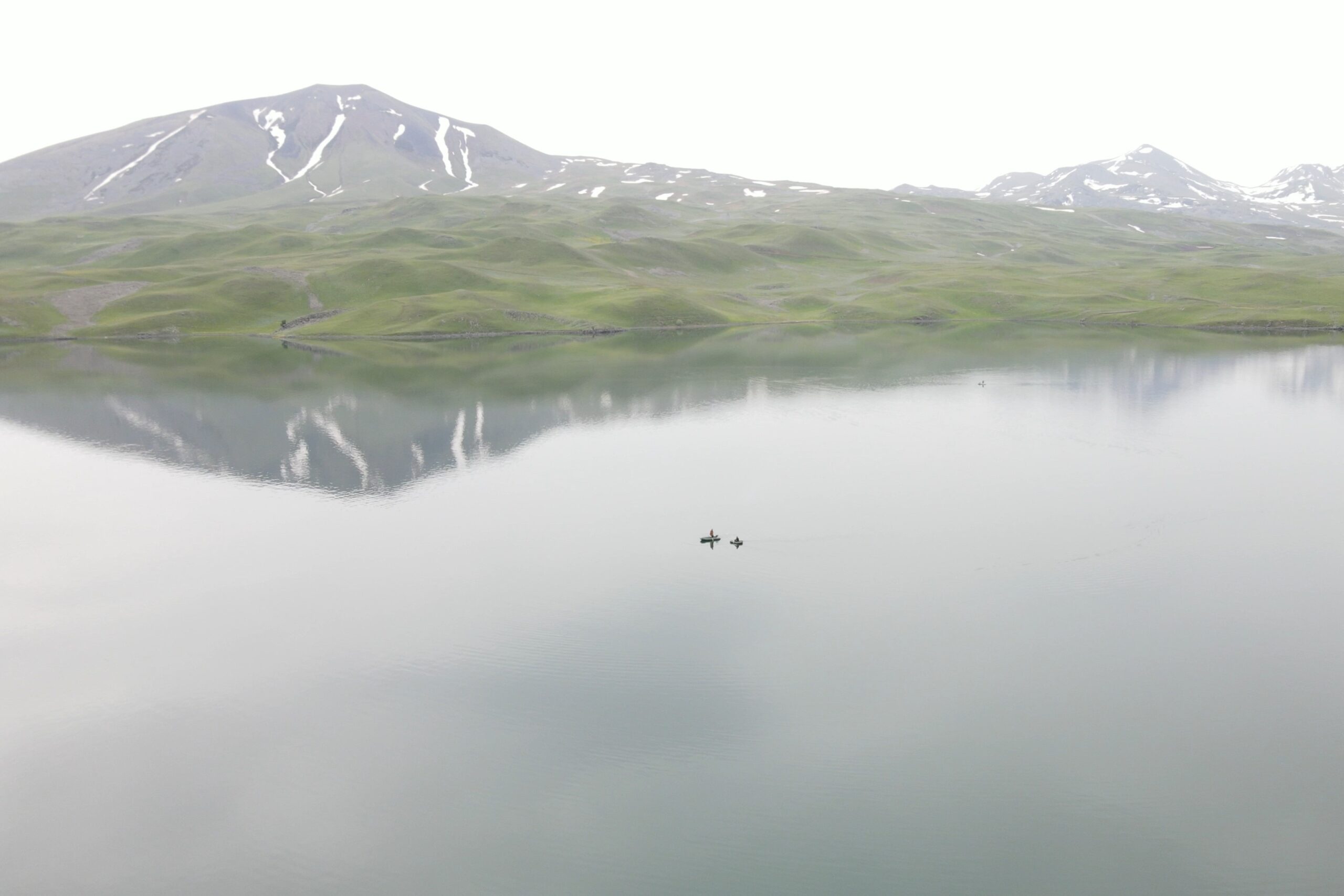
‘I would say, everything was against me that time’, says Nika. ‘Probably, as old men say, it was destiny. I was standing searching and searching. Finally, I found a small group of black birds; I thought I had found the scoters.’
Ecstatic with his discovery, he returned to his professors to break the news. But the academics were unconvinced: considering the status of the species in the Caucasus, the poor weather conditions, and the distance that Nika was spotting from, they suspected that he had mistaken a similar-looking species, perhaps a tufted duck or common pochard, for the rare bird.
But Nika wasn’t ready to give up on his finding. Returning at the start of August the following year, Nika and two friends visited the island for answers. Unknown to them at the time, most nesting females have typically already left the island by this time. It made it all the more surprising and momentous when one of Nika’s friends encountered a female velvet scoter, which they managed to catch with their bare hands.
‘We were so surprised and so happy that we found the scoters’, says Nika. ‘We found the nest and we had everything, we had proof.’
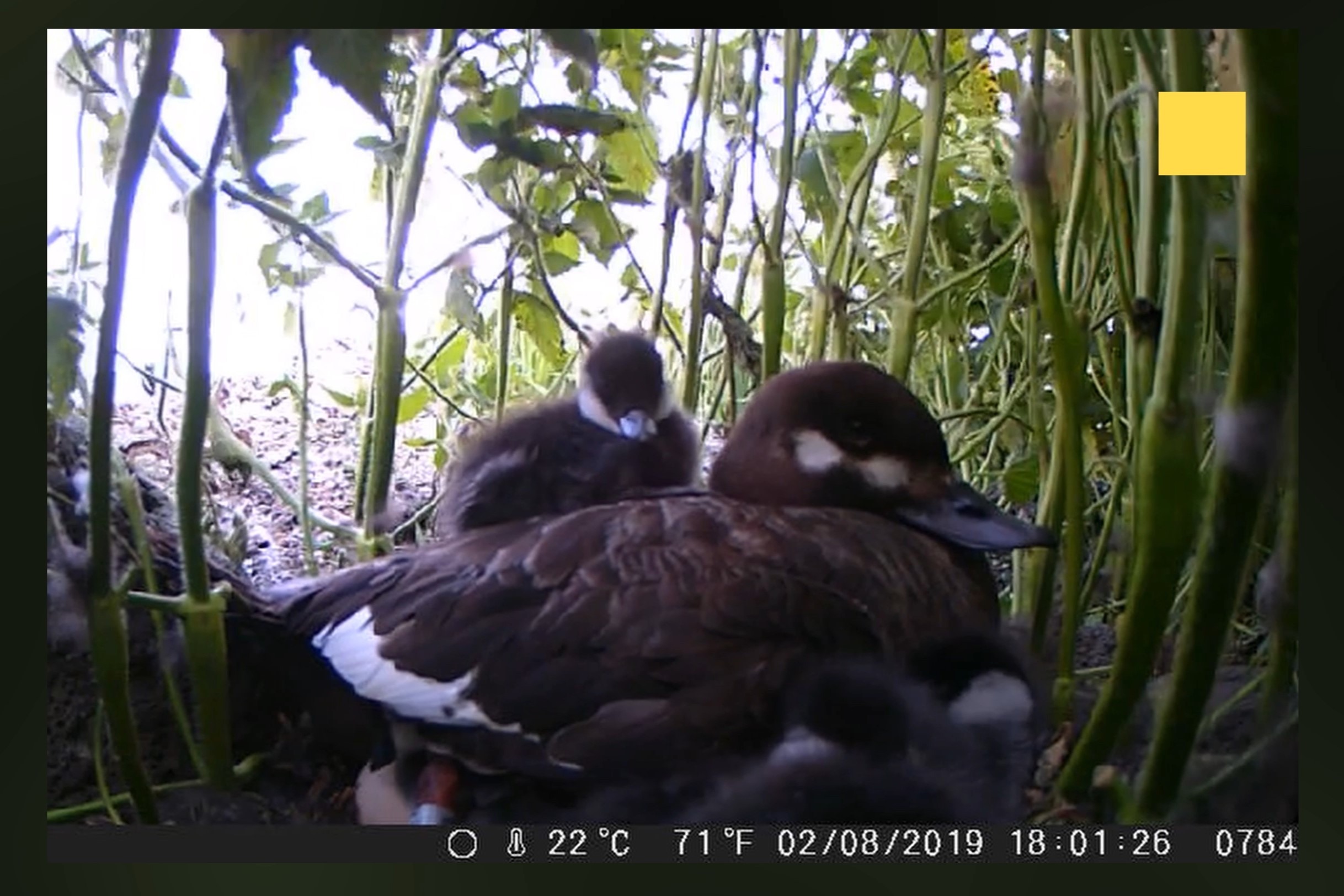
After the miraculous finding, Nika’s direction was clear.
He spent two years organising project proposals aimed at conserving the birds and encouraging their return to the island.
His efforts reached fruition in 2017, when he returned to Ilia State University to begin the conservation work that he continues to this day, under the umbrella of his organisation ‘Garieli’ — the Georgian for velvet scoter.
‘I was lucky when I went to Ilia State University to find people who would support me, which led me to find the scoters. I would say I found myself with Ilia State University’, says Nika.
Triumph against the odds
The Caucasus is one of 36 terrestrial biodiversity hotspots, says Bejan Lortkipanidze, director of NACRES Biodiversity, an NGO working on conservation in the South Caucasus. These hotspots, areas that are home to an unusually high number of different species, are under ‘immense pressure’.
‘Biodiversity has played a vital role in shaping our culture, inspiring the people of Georgia, and providing a wide range of ecological services throughout the centuries’, says Bejan.
He warns, however, that overexploitation of natural resources has pushed numerous species in Georgia ‘to the brink of extinction’, with one such species being the velvet scoter.
Nika has been fighting to bring them back from that brink.
Nika makes frequent visits to the lake and village of Tabatskuri throughout the year, in the region’s freezing winters and hot summers. His work includes direct conservation efforts including monitoring and habitat protection, raising awareness in Tabatskuri village, and engaging with local communities.
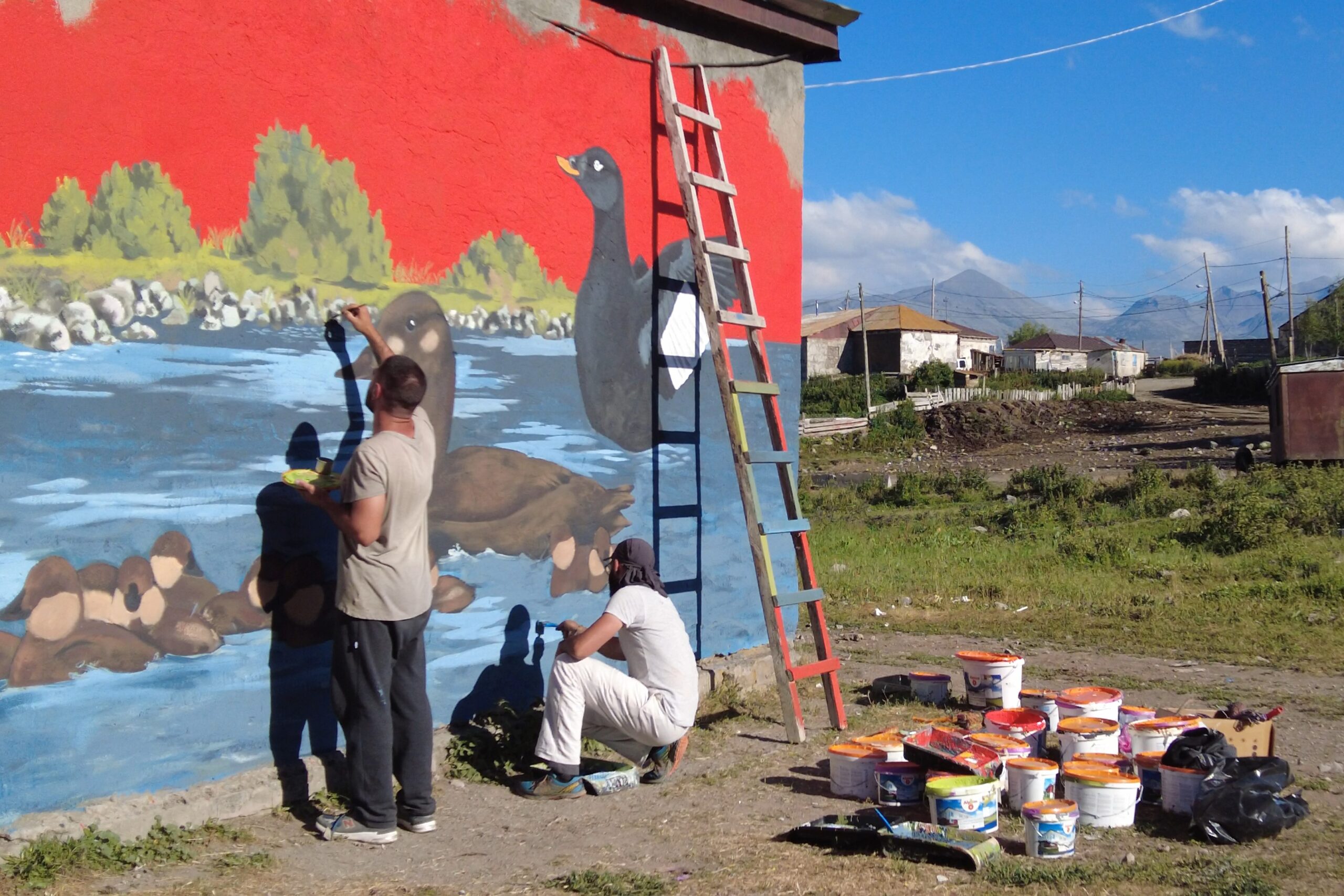
But the middle of summer is the busiest period, when Nika and volunteers have lots to do on the island. Each year, every metre of the island is scanned, with every female scoter caught, checked over, and ringed, and the eggs counted in every nest.
‘In the beginning, there were only six nests and now there are more than 40. It’s a really really big success for a little little guy, who had no [academic] background, only from hunting and wandering in nature’, says Nika.
After a partnership with the Conservation Leadership Programme, Nika is now working to secure long-term backing for these conservation efforts. Over the years, he has often needed to use his own financial resources to carry out work.
But the costs to Nika are not just financial, with his work also significantly impacting his family life.
His wife, Marina, says that there are often months where he spends more time on expeditions than in Tbilisi.
‘Of course, I prefer to see him every day, for him to be with kids, to be with me after work, simply to talk to him. But, I know how happy he is when he leaves for Tabatskuri, when he goes to the velvet scoters’, says Marina. ‘I think he is on the right path and he should continue to do what he does.’
Nika adds that he is ‘a lucky man’.
‘My wife can understand my thoughts, and she is always standing by my side’, says Nika. ‘It gives me strength’.
‘We owe it to us, and to them’
NACRES’ Bejan says that Nika has made a ‘significant contribution’ to conservation in Georgia.
‘Nika Paposhvili’s remarkable work on the velvet scoter has made a significant contribution to species conservation in the country. His dedication and passion to save the last breeding population of velvet scoters have not only inspired us but also raised public awareness about the duck’, says Bejan. ‘That gives me hope that the species will be successfully saved for future generations.’
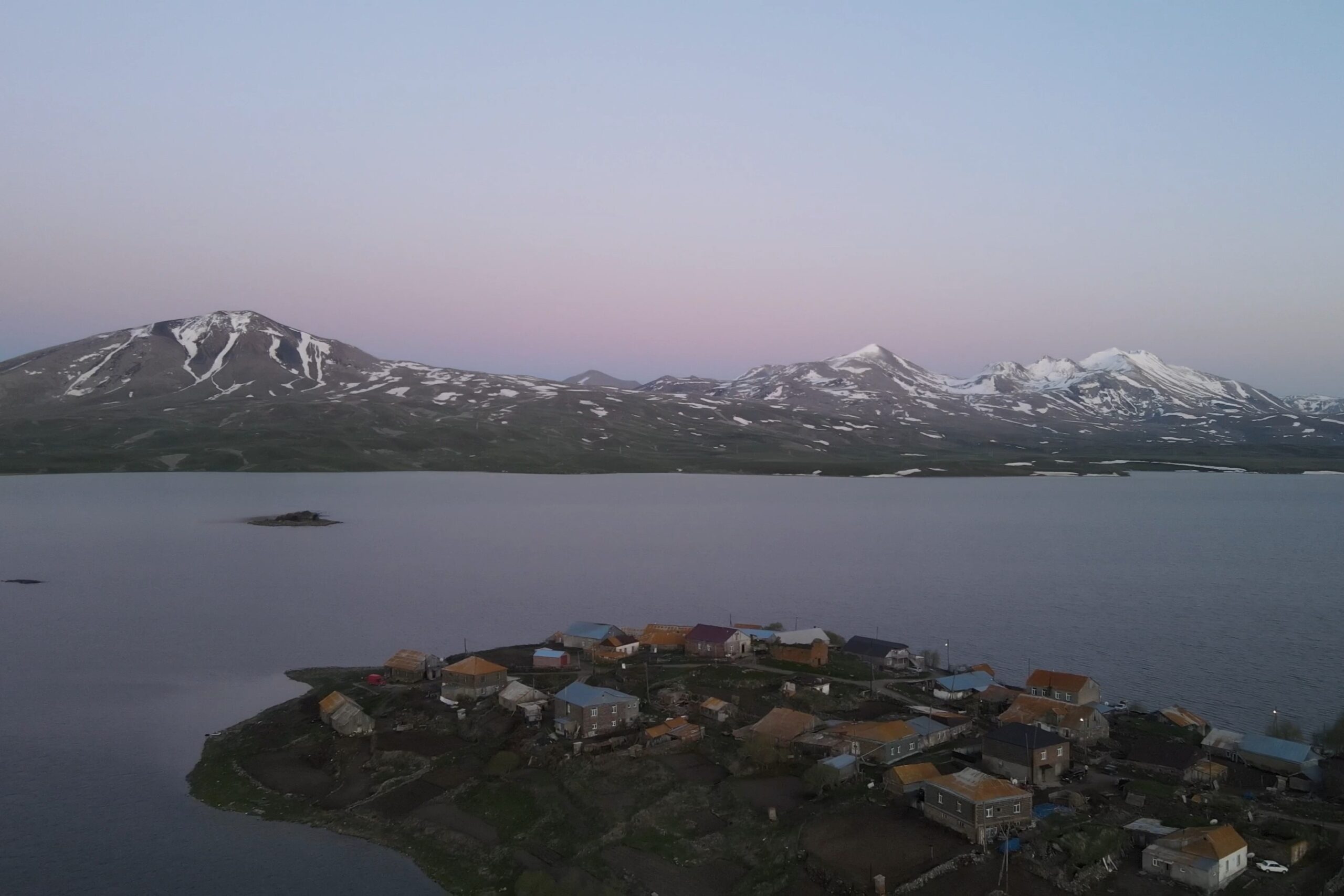
Elene Nikuradze, co-founder of Nature Conservation Georgia, adds that Nika has been working against the ‘many threats’ that face the scoters.
‘Thanks to Nika Paposhvili with his untiring work and dedication [in his] scientific activities and friendly relationships with the local community, the state of the velvet scoter population is more stable’, says Elene.
Nika, however, is more cautious in his assessment of the impact of his work.
‘There are a lot of questions, and no answers, and I’m trying to find answers’, says Nika. ‘This species, this bird, is like my family member.’
‘The population that we have in Georgia is on the real edge of extinction’, he adds. ‘And we are human, but in my opinion, [just like] scoters [and] other animals, we belong to nature. […] We owe it to us to take care of them.’
Despite the success of his interventions, he sees his work as postponing the inevitable, rather than providing a solution.
‘We will lose this population, it’s just a matter of time’, says Nika. ‘[Saving the velvet scoters] is not impossible, but really really hard, and very unlikely.’
But despite the factors stacked against them, Nika continues to fight on the side of the velvet scoters, giving them, and the ecosystem that they are a part of, a chance to survive a little longer in Tabatskuri.
This story has been explored in the author’s film, Mr. Velvet Scoter (მისტერ გარიელი), which is available to watch online. The film has English, Georgian, and Armenian subtitles. It is the final film of a trilogy of wildlife conservation films, coming after Like an Animal and Vanishing Sky Lords.




